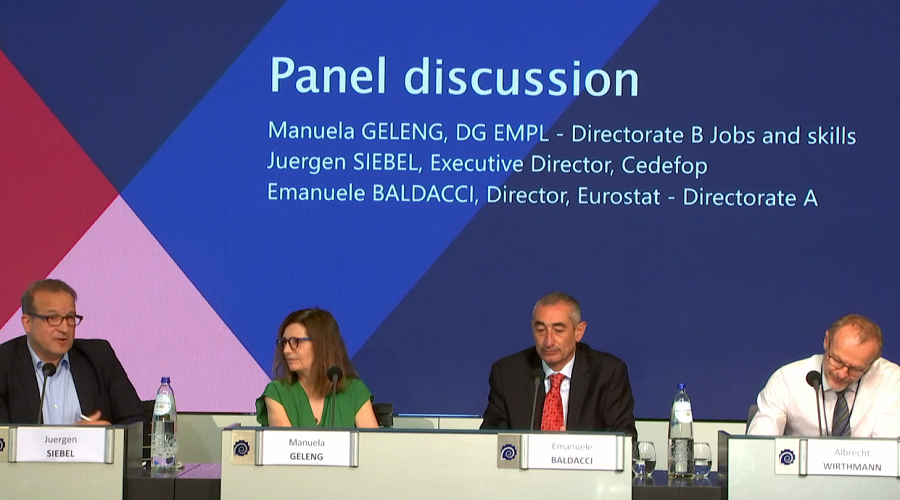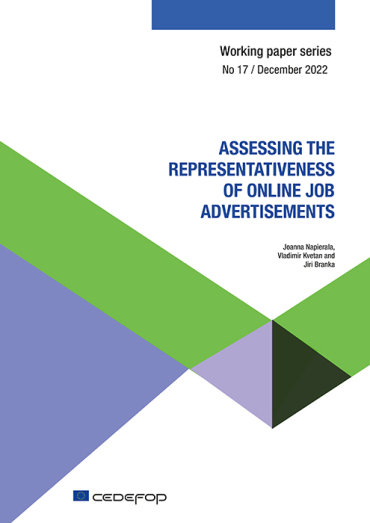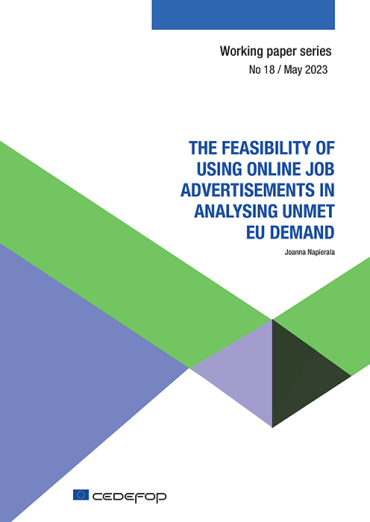Innovative new data sources and approaches for skills intelligence were discussed at a Web Intelligence Hub (WIH) conference organised by Eurostat, the European Commission’s statistical office, and Cedefop, on 12 June in Brussels.
The event was structured around the notion of ‘Skills in the front row’ and presented the progress in setting up the WIH and how it can answer pressing policy matters in Europe.
In the context of the development of the WIH, Eurostat and Cedefop have created a strong foundation for the use of online job advertisements (OJAs) to produce employment and skills statistics, as well as advanced skills intelligence tools. The OJA data collection, set up by Cedefop and now run by Eurostat, is a hub cornerstone. The WIH has already extracted data on skills and other variables from more than 200 million online job advertisements in 32 European countries.
Cedefop uses the OJA data in its Skills OVATE and Skills intelligence tools, where they are combined with other Cedefop data and analyses, most notably the skills forecast and the European skills and jobs survey. As country coverage is growing, the team works on developing more detailed information on jobs, capturing new and emerging skills, formal qualifications and certificates, or development of state-of-the-art, data-driven digital and green taxonomies.
Permaskilling is the future
European Commission President Ursula von der Leyen’s proposal to make 2023 the European Year of Skills highlighted skills intelligence’s role in informing policy-makers about future skills needs.
Speaking at the conference, Cedefop Executive Director Jürgen Siebel said that the European Year of Skills is a unique opportunity to showcase that permaskilling is the answer to a permacrisis.
Mr Siebel went on: ‘We have invested time and resources to collect online job ads and build up Skills OVATE. The returns are coming in. Cedefop is expanding its big-data analysis work, e.g. on green and digital skills. By partnering with Eurostat and other stakeholders, we can achieve a user-centred skills intelligence.’
The European Commission’s Manuela Geleng argued that the European Year of Skills is ‘basically about changing our mindset to think that we need to up- and reskill throughout our life.’
Eurostat’s Emanuele Baldacci noted: ‘More data means there is more complexity and you have to invest in the proper algorithm. It's a big challenge and big potential to provide the kind of quality information needed.’
Cedefop Head of Department for VET and Skills Antonio Ranieri stressed: ‘Providing more and better learning opportunities to young people and adults is the best way to address skills shortages, gaps and mismatches. We use the data we collect from online job ads to better understand the trends, not only in existing, but also new occupations.’
Cedefop experts Vladimir Kvetan, Jiri Branka and Joanna Napierala presented the Agency's work on skills intelligence, including digital skills from online job ads and how OJAs can complement official statistics or data sources.



